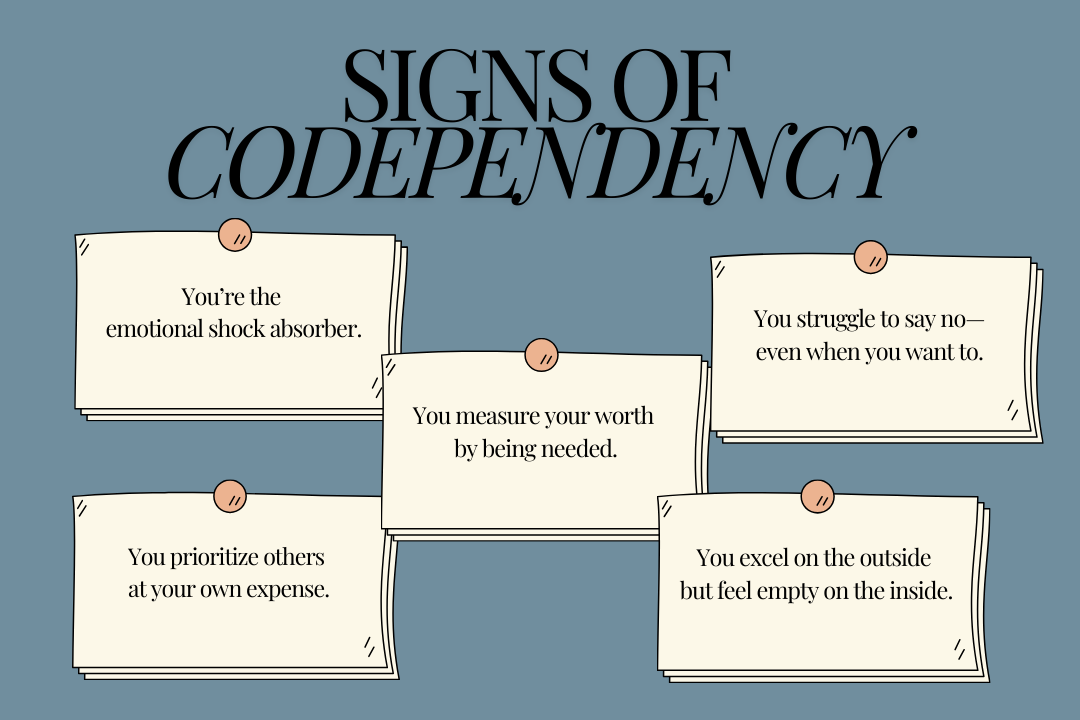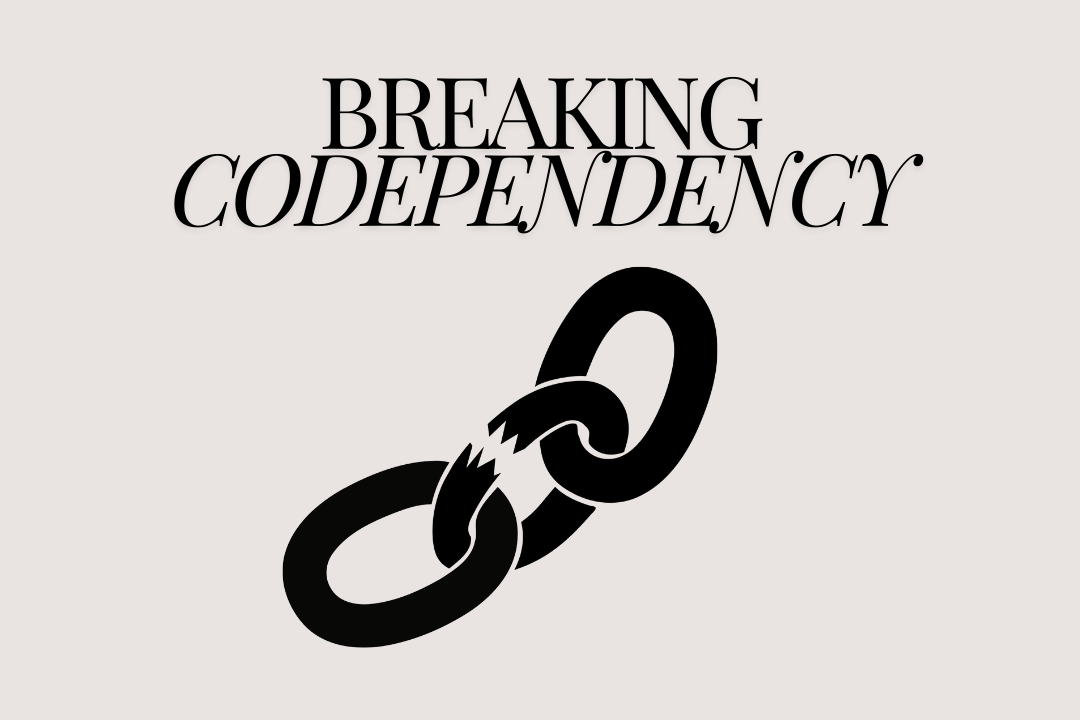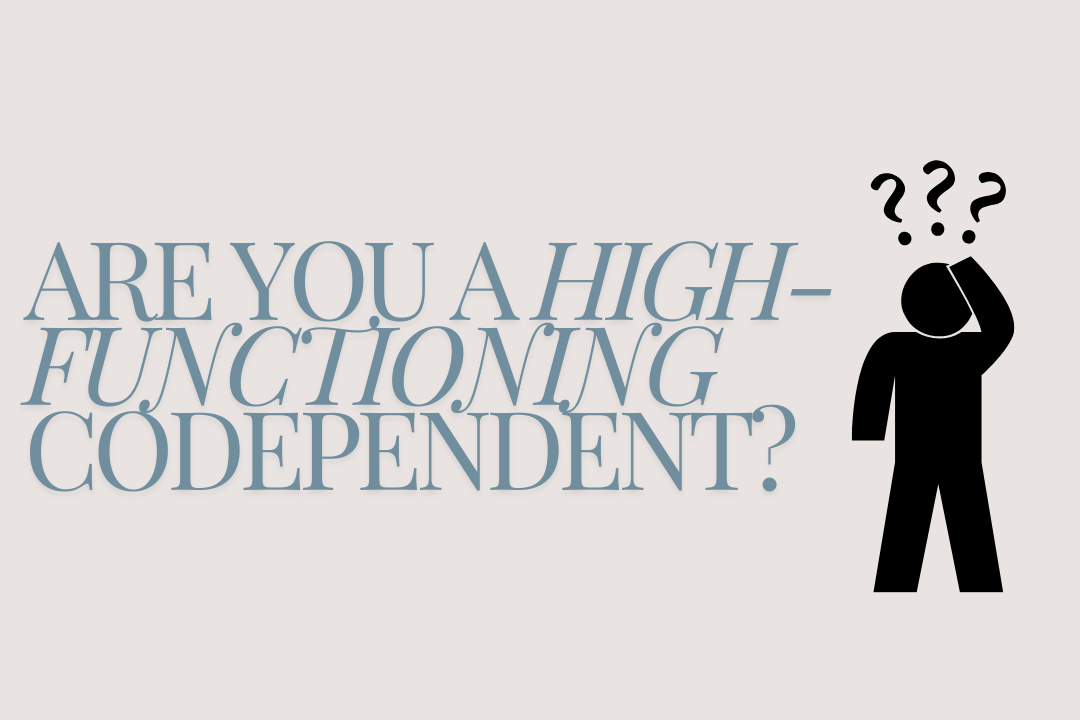The Hidden Struggles of High-Functioning Codependency: How Success Can Mask Emotional Burnout
Introduction: The Overachiever’s Dilemma
💡 Success shouldn’t feel like exhaustion. You’re a high-achiever. The one everyone depends on. The problem-solver, the fixer, the one who always steps up. But behind the accomplishments, do you feel drained? Struggling to say no? Constantly managing others' emotions?
I’ve worked with CEOs, physicians, attorneys, and high-performing creatives—people who, by all outward measures, have "made it." They’re the ones their teams rely on, the glue in their relationships, the problem-solvers who step in before anyone even asks.
Yet, in the quiet moments between meetings, or at night when the distractions fade, they feel something gnawing at them—an exhaustion they can’t quite explain. It’s not just burnout; it’s deeper. It’s high-functioning codependency—a pattern of compulsively meeting others’ needs, solving their crises, and keeping the peace, often at the expense of their own well-being.
Maybe you recognize this in yourself. You don’t identify as “codependent” in the traditional sense because you’re not falling apart—you’re excelling. But something still feels… off.
Let’s unpack what high-functioning codependency looks like, why it’s so prevalent in successful people, and how you can start loosening its grip.
Signs of High-Functioning Codependency
Unlike classic codependency, which is often associated with enmeshment or losing oneself in another person, high-functioning codependency can look like extreme competence. It’s sneaky because it’s rewarded—at work, in relationships, in your social circles. But here are the whispers of it:
You’re the emotional shock absorber.
If someone around you is anxious, upset, or struggling, you immediately step in—not just to support, but to fix it. Their discomfort makes you uncomfortable.You measure your worth by being needed.
If people aren’t depending on you, you feel… off. You might find yourself over-giving in relationships or saying yes to extra work, even when you’re stretched too thin.You struggle to say no—even when you want to.
You rationalize: They really need me right now. It’s not a big deal. I can handle it. And so, you take on more, feeling simultaneously indispensable and resentful.You excel on the outside but feel empty on the inside.
You hit milestones—promotions, accolades, financial success—but the satisfaction is fleeting. Instead of feeling fulfilled, you move the goalpost and keep going.You prioritize others at your own expense.
Self-care feels indulgent. If you take time for yourself, you feel guilty or anxious, as if something important is being neglected.
The Cost of High-Functioning Codependency
High-functioning codependency works—until it doesn’t. Here’s what it’s really costing you:
1. Emotional and Mental Health
You live in a near-constant state of stress, hyper-aware of others’ moods.
Anxiety becomes the background noise of your life, often manifesting as perfectionism, overthinking, or chronic worry.
You don’t know how to turn off—your nervous system is always in high alert mode.
2. Relationships
You give more than you receive, leaving you emotionally depleted.
Your boundaries are porous—even if you recognize the need for them, enforcing them feels too uncomfortable.
Resentment builds silently as you take on responsibilities that aren’t yours.
3. Career and Success
Your high-functioning codependency may have helped you climb the ladder—but it’s also what’s keeping you stuck.
You’re reluctant to delegate because it feels easier (or safer) to do everything yourself.
You struggle with imposter syndrome, despite your actual success.
4. Physical Health
Chronic stress leads to sleep disturbances, fatigue, and even autoimmune flare-ups.
Your body absorbs the stress you refuse to acknowledge—manifesting as tension, headaches, or digestive issues.
Why High-Achievers Are Prone to Codependency
Many high-functioning codependents developed these tendencies early on. Maybe you grew up in a home where being "helpful" was rewarded, or where emotional stability depended on your ability to anticipate and manage others' moods.
Now, as an adult, those same skills have become part of your identity. You’re the problem-solver, the responsible one, the steady force. And while that’s admirable, it also means you’ve been conditioned to believe that your worth is tied to how well you meet others’ needs—not your own.
But here’s the truth: You don’t have to choose between being successful and being at peace.
Practical Strategies to Break Free
Let’s talk about how to untangle yourself from high-functioning codependency—without abandoning the parts of yourself that make you exceptional.
1. Notice Your Patterns Without Judgment
Self-awareness is everything. Start by asking:
Where in my life do I feel obligated rather than genuinely willing?
What do I fear will happen if I stop over-functioning?
2. Set Boundaries Without Over-Explaining
Not every "no" needs a justification. Try saying:
“I’d love to, but I don’t have the capacity right now.”
“I trust you’ll figure that out—I know you’re capable.”
3. Challenge the Need for External Validation
Your worth isn’t dependent on being needed. Practice saying to yourself:
“My value isn’t based on what I do for others.”
“I am allowed to prioritize my well-being.”
4. Build a Tolerance for Discomfort
At first, setting boundaries or prioritizing yourself will feel wrong. That doesn’t mean you’re doing it wrong—it means you’re breaking old conditioning.
5. Seek Support From People Who Get It
Therapy is a game-changer. If this resonates with you, working with someone who understands high-functioning codependency can help you rewire these patterns.On the outside, you may look like you have it all together. You’re the one people turn to in times of crisis. At work, you’re the dependable overachiever, always going above and beyond. In your personal life, you’re the peacemaker, the fixer, the one who keeps everything running smoothly.
But beneath the surface, you feel stretched thin. You find yourself constantly worrying about others, often at the expense of your own needs. If this resonates with you, you may be experiencing high-functioning codependency—a hidden pattern that’s easy to overlook, especially for high achievers.
Let’s explore what this looks like, how it impacts your life, and what you can do to break free.
Take the High-Functioning Codependency Quiz
Curious if you might be navigating life as a high-functioning codependent? Answer each question with a score from 1 to 5, based on how often the statement applies to you:
1 = Never
2 = Rarely
3 = Sometimes
4 = Often
5 = Always
Quiz Questions:
I feel responsible for fixing other people’s emotions.
I struggle to say no, even when I want to.
I define my worth by how much I do for others.
I feel guilty when prioritizing myself.
I take on more than my fair share—at work, in friendships, or in my family.
I often anticipate others’ needs before they even ask.
I feel anxiety or discomfort when someone is upset with me.
I avoid conflict by over-accommodating others.
I have difficulty asking for help, even when I need it.
I feel exhausted but continue to push through because I don’t want to let others down.
Scoring & Interpretation:
🔹 10-20 Points – Healthy Boundaries
You have strong self-awareness and maintain healthy boundaries.
You likely balance helping others with taking care of yourself.
Keep checking in with yourself to ensure you’re not slipping into over-functioning.
🔹 21-30 Points – Mild Codependent Tendencies
You may struggle with putting yourself first at times, but you’re aware of it.
You occasionally overextend yourself, but you recognize when you need to step back.
Focus on strengthening your ability to say “no” without guilt and checking in with your needs.
🔹 31-40 Points – Moderate High-Functioning Codependency
Your worth is likely tied to how much you do for others, and boundaries feel challenging.
You may be experiencing emotional exhaustion, resentment, or burnout.
Start practicing small boundary-setting strategies and self-validation exercises.
🔹 41-50 Points – Strong High-Functioning Codependency
You likely feel responsible for others’ happiness, often at great personal cost.
There may be a deep fear of disappointing or letting others down.
You’re likely struggling with chronic stress, exhaustion, or difficulty prioritizing your own needs.
Consider seeking professional support to help shift these deeply ingrained patterns.
Final Takeaways
High-functioning codependency can be a challenging pattern to break, but the good news is that change is possible. By developing awareness, setting boundaries, and prioritizing self-care, you can reclaim your time, energy, and emotional well-being.
If this resonates with you, I invite you to take the next step. Contact us to break free from high-functioning codependency.
Ready to get started? Book a session or explore more resources on my website.





